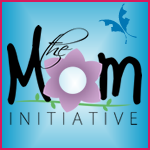Then the picture fades.
What do you do? What happens when the spark goes out? Do you quit? Give up? Take a nap?
Here’s what you do. You clean the toilet, scrub the shower, and mop the floor. When you’re done, you wash your hands, of course, then you sit back down and stare blankly at your computer screen. You read your piece out loud very slowly, noting strong areas and highlighting weak spots. You listen to your own inflections and mark the sentences you tripped over. And you ask yourself the following questions:
- Who cares? Is your story worth a reader’s time?
- How did this happen? Did I exploit nouns and verbs?
- Does it matter? Is every aspect significant?
You want to write something that people will read. Reading a book, short story, or article is a time investment. Offer something of value to your audience.
Eliminate as many gerunds and participles as possible. Minimize adverbs and adjectives. Reduce clauses. Show, don’t tell. Appeal to the senses.
Give your reader credit. Trust that he/she knows things like tears are salty and oceans are sandy, but do authenticate your characters with unique details. If your characters came to life, you’d want your readers to recognize them.
Now take another look. Has the vibrance returned? If not, go eat a snack, start a load of laundry, and give the dog a bath. And try again tomorrow.



















